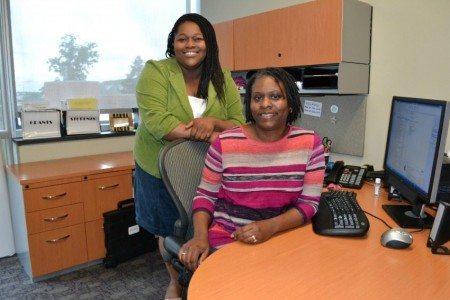
Keneshia Bryant-Moore, Ph.D., F.N.P., R.N., and Tiffany Haynes, Ph.D., began their research careers as KL2 scholars in 2011 and 2012, respectively. Today they are on solid footing as federally funded researchers.
Bryant-Moore, an associate professor in the Fay W. Boozman College of Public Health, is the principal investigator of a $110,000 Patient-Centered Outcomes Research Institute (PCORI) award. The funding complements her $1 million 2014 Health Resources and Services Administration grant supporting her effort to bring together Arkansas faith leaders, educators, researchers and health care providers on June 17 for the second annual Community-Campus Partnership Conference to Address Health Disparities.
“The TRI KL2 scholars program launched my research engagement with the faith community which inspired the theme of this year’s conference,” Bryant said. She noted the assistance of Kate Stewart, M.D., M.P.H., and Camille Hart, M.P.H., from TRI’s Community Engagement program. Her collaborators also include Haynes and KL2 alum Brooke Montgomery, Ph.D.
“I am truly grateful for TRI’s support,” she said.
Haynes, an assistant professor in the College of Public Health, was recently awarded $2.1 million for a faith-based mental health intervention in the Delta. Haynes is co-principal investigator with Karen Yeary, Ph.D. Bryant-Moore is a co-investigator, and two other KL2 alums – Dennis Kuo, M.D., M.P.H., and Elvin Price, Pharm.D., Ph.D., are on the project’s steering committee. The five-year NIH grant will allow the team to test the intervention’s effectiveness as well as strategies for sustaining the intervention.
Haynes, a clinical psychologist, said the intervention is led by lay people, helping improve mental well-being through preventive approaches. Anyone experiencing depression or other mental illness will be guided to a mental health professional.
In addition to two years of KL2 support, Haynes said she was aided by TRI’s research forums.
“This intervention can improve the lives of many underserved people, and it wouldn’t have been possible without the support of TRI,” Haynes said.
